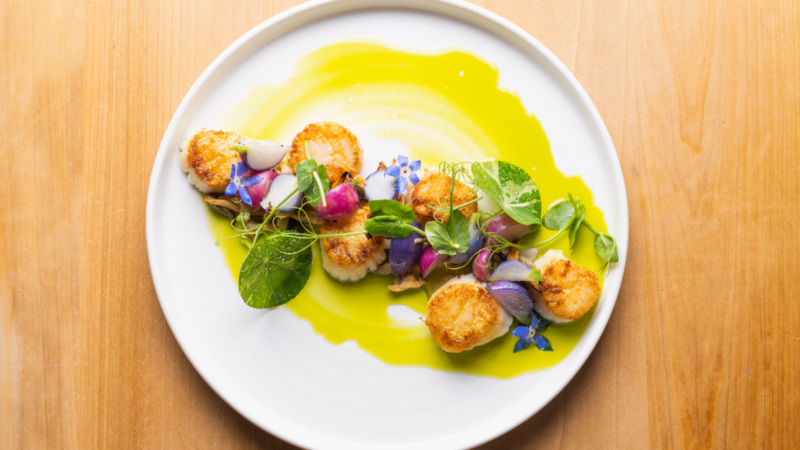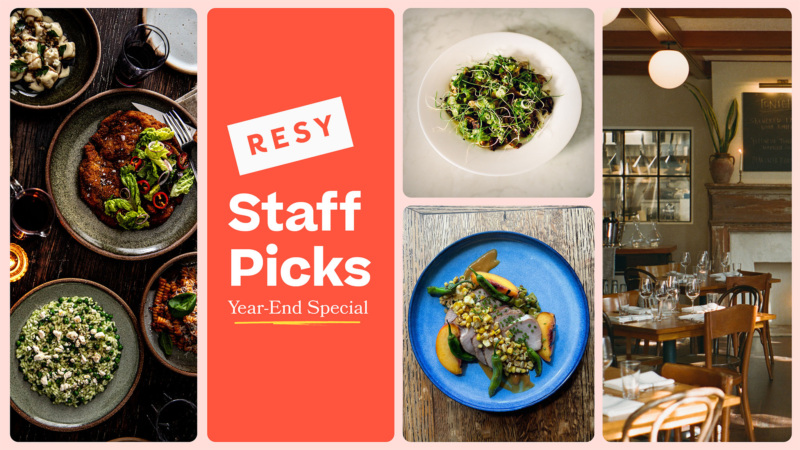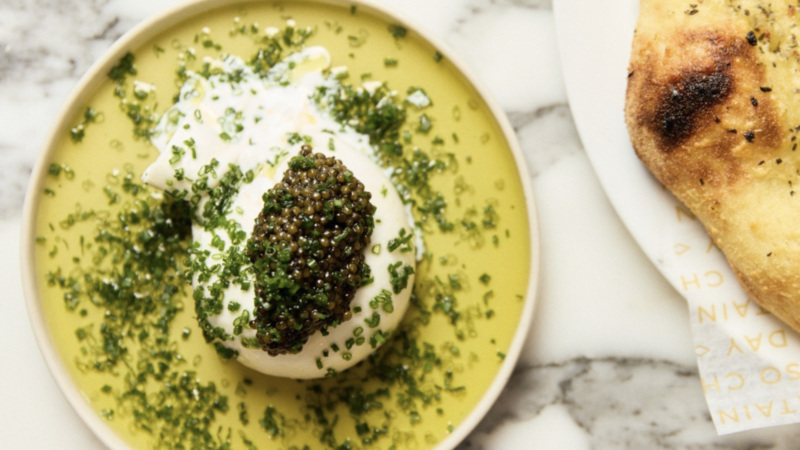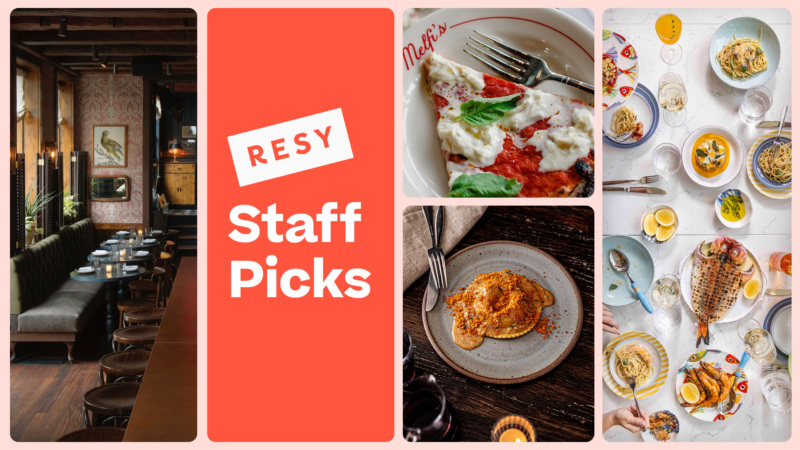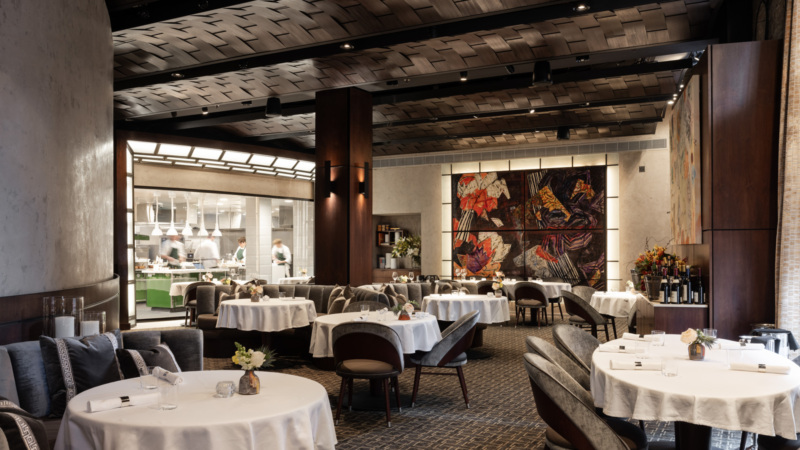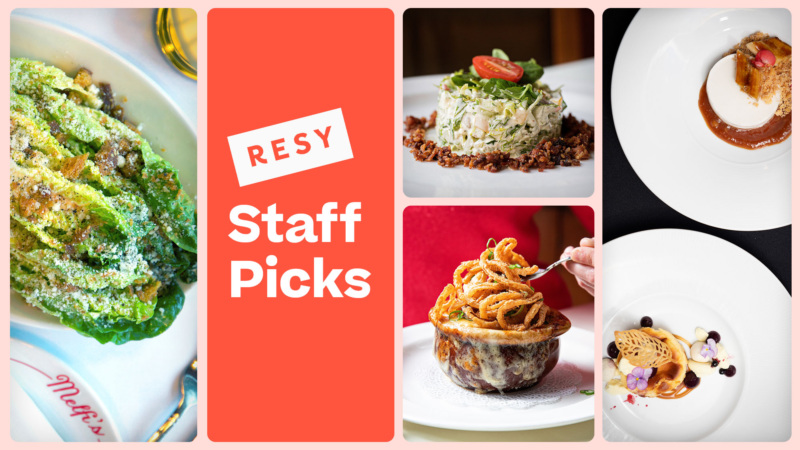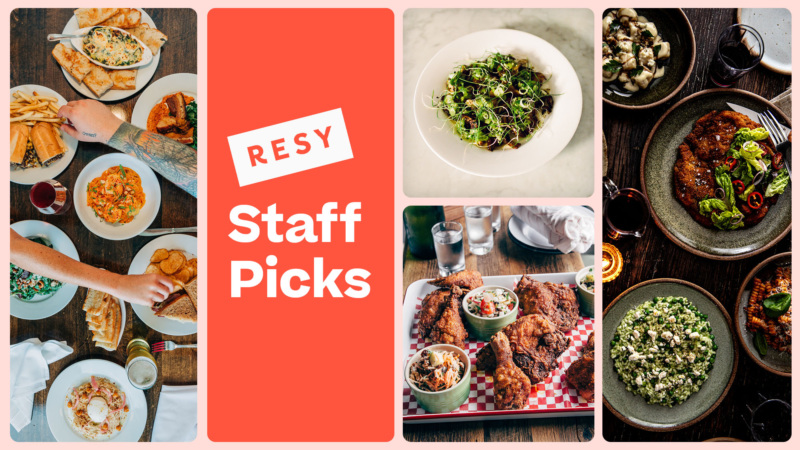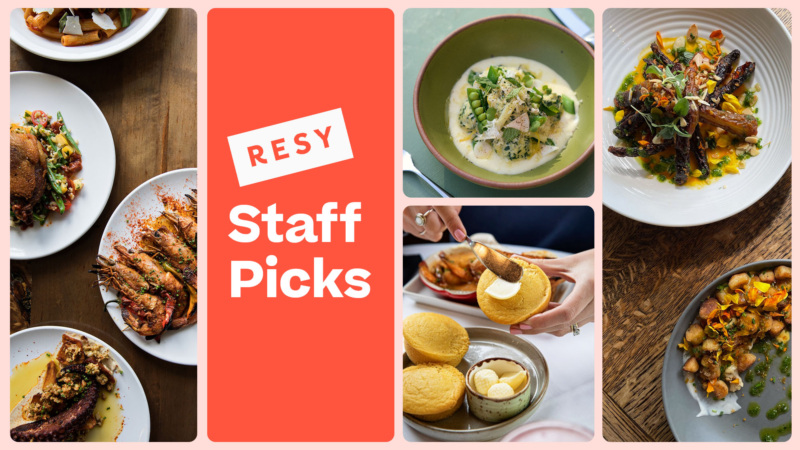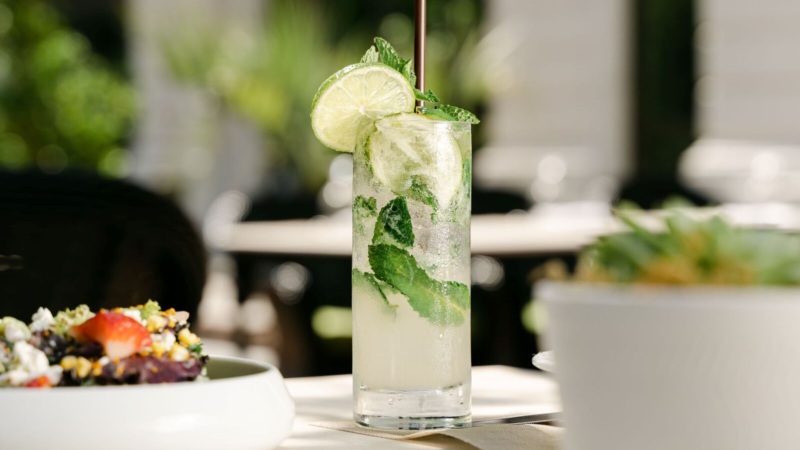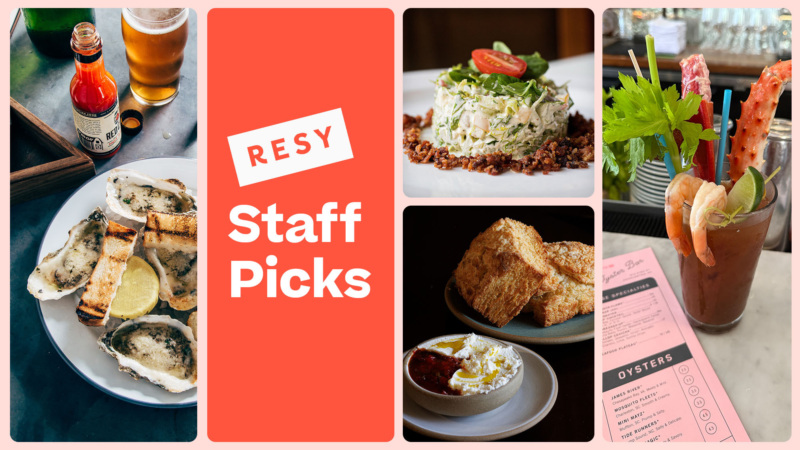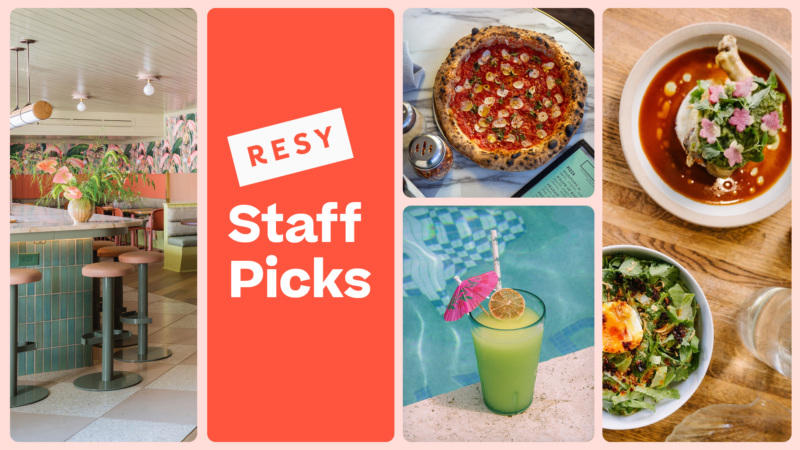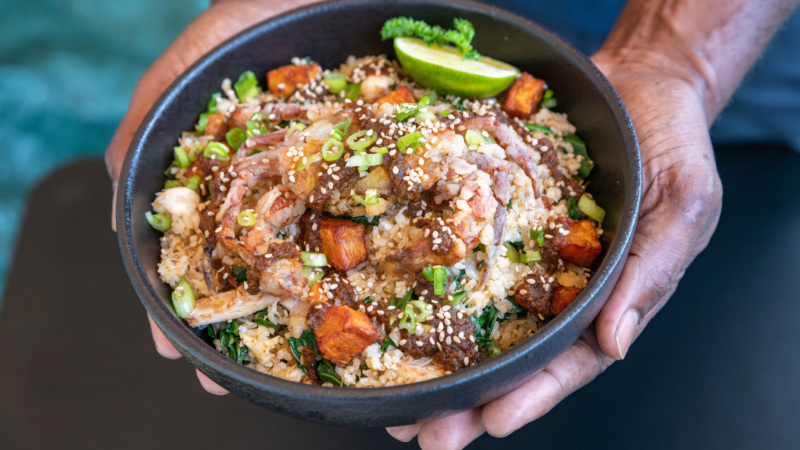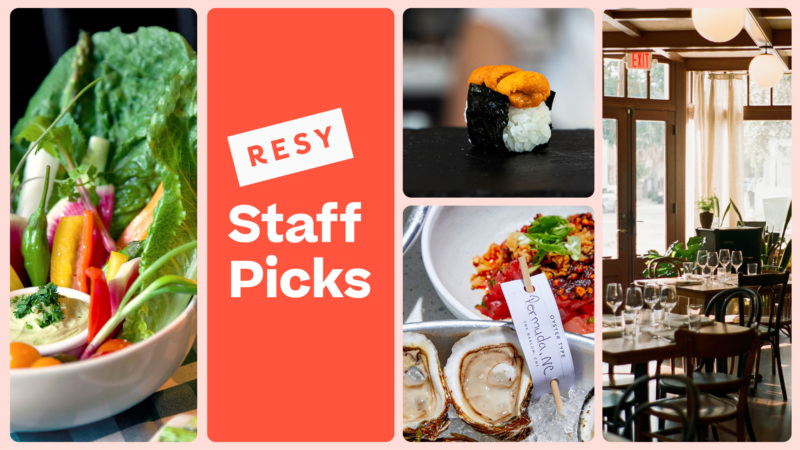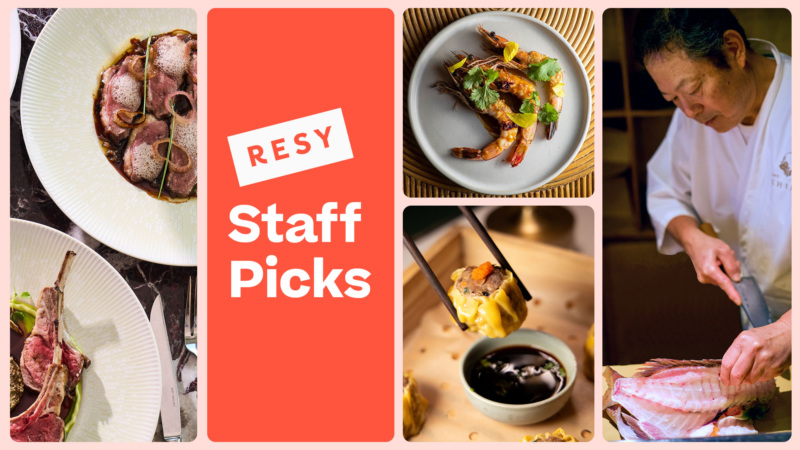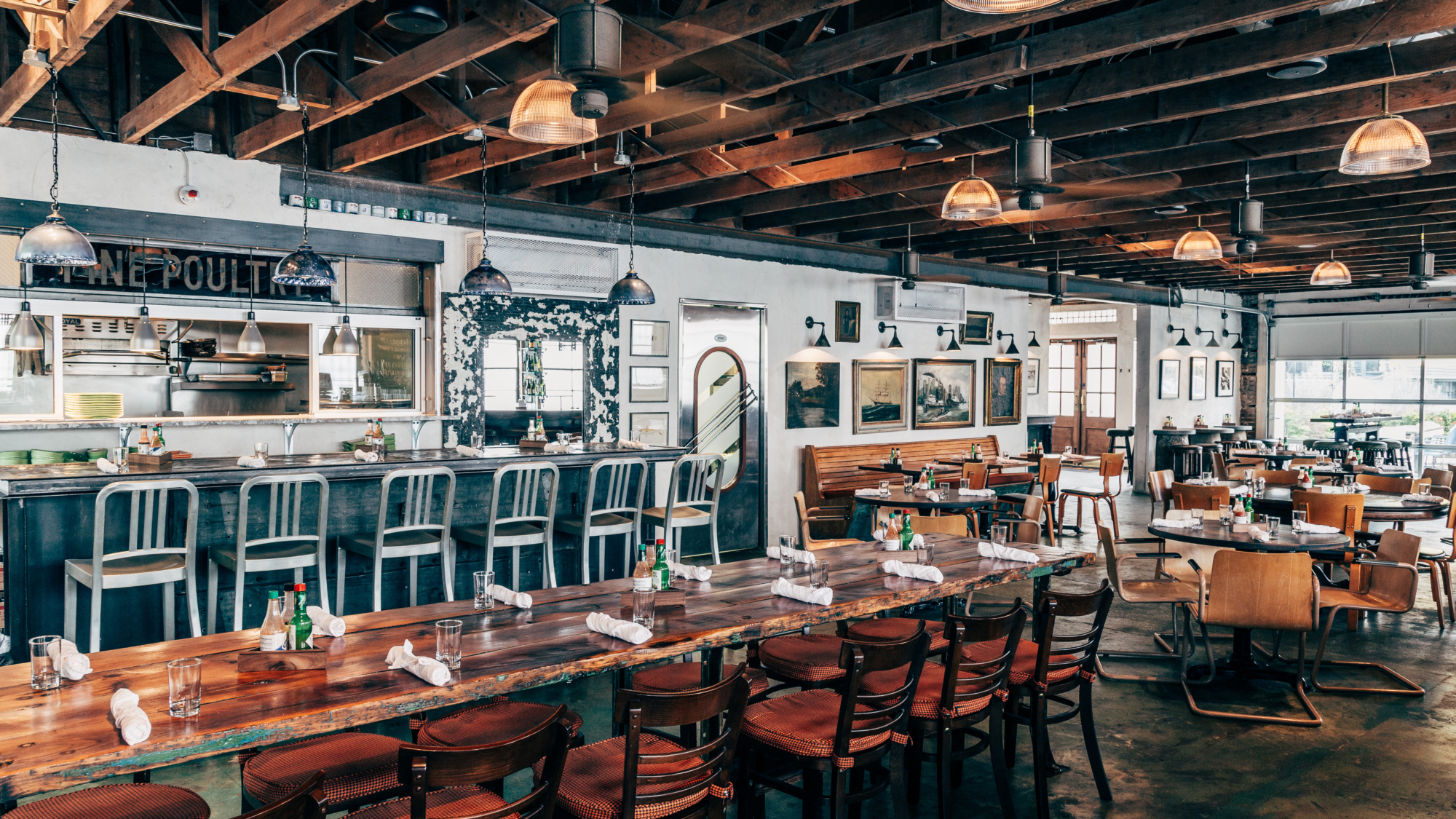
Letter of Recommendation Charleston
Leon’s Hasn’t Been in Charleston Forever. It Just Feels That Way.
Updated:
Over the last two decades, Charleston has made itself synonymous with culinary superiority — with a winning combination of charismatic chefs, coastal ingredients, solicitous attitude, and regard for appearances that coalesced around the turn of the current century. Nowadays, every eater who plans trips around restaurants puts Charleston high on the list.
And yet. If something has kept Charleston out of the top slot on restaurant city roundups, it would be the lack of dining institutions, places which had retained their specialness over generations, despite millions of visitors helping themselves to a piece of the city’s hospitality.
Resy Presents
Tables Worth a Trip
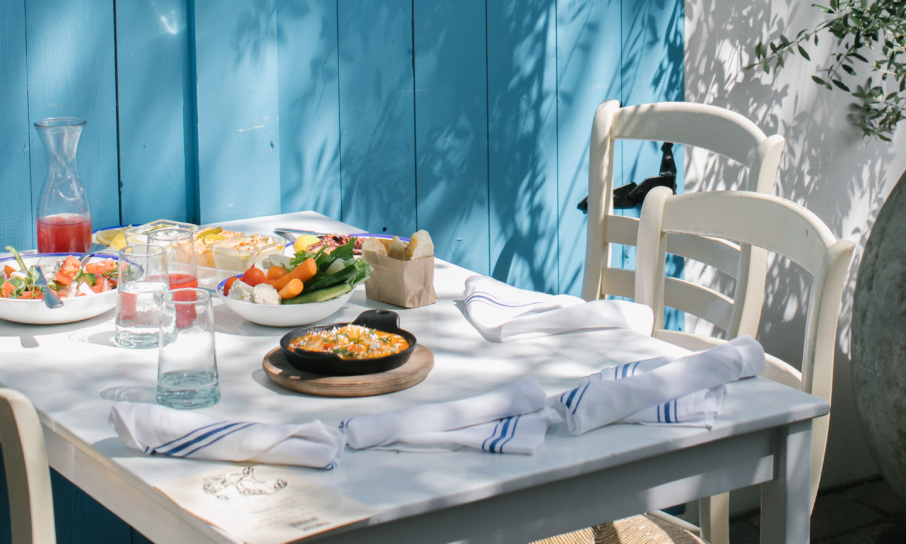
- 40 Restaurants Across America Worth a Journey in 2024
- Acamaya Is Ana Castro’s Love Letter to Mexico, Written in Seafood
- How Does Friday Saturday Sunday Succeed? By Being Ever Bolder
- At Boston’s Somaek, A Melding of Family Ties and Korean Tradition
- At Houston’s March, Felipe Riccio Isn’t Afraid to Get Deep
- The Ultimate Guide to Hilton Head, Summer 2024 Edition
The city has no Galatoire’s or Joe’s Stone Crab. No Keens Steakhouse or Musso & Frank’s. What qualifies as a storied old restaurant in Charleston is Cru Café, which John Zucker opened in 2002.
There are reasons for this gap, some of which aren’t unique to Charleston. For instance: South Carolina, until 2006, restricted bars and restaurants to mini bottles, a relic of Prohibition that inhibited the development of high-margin cocktails. And when anxiety about alcohol is written into state law, it’s a safe bet that some folks are going to think twice about drinking in public.
Other factors are more complex and disturbing, and in keeping with Charleston’s history as a hub of the domestic slave trade. Well into the 20th century, Charleston’s signature meal was three o’clock dinner, served before sunset because white elites weren’t comfortable having Black cooks and servers in their homes after dark. They were, however, very comfortable being waited upon, a privilege that didn’t require them to venture out to restaurants.
To be sure, Charleston had restaurants. But many of them were luncheonettes that weren’t built to last, while Black-owned dining rooms primed to become institutions vanished in the aftermaths of integration, gentrification, and in 1989, Hurricane Hugo.
Surely, Brooks Reitz was sensitive to this void of iconic rooms. Reitz formerly had been the general manager of FIG, which opened in 2003 with a classically French approach to Lowcountry ingredients and became the restaurant most emblematic of contemporary Charleston’s culinary preeminence. But in 2014, Reitz corrected the historical record by opening Leon’s Poultry & Oyster Shop, a studiously comfortable, self-proclaimed fried chicken “joint,” anchored by an oyster bar and done up in industrial fixtures.
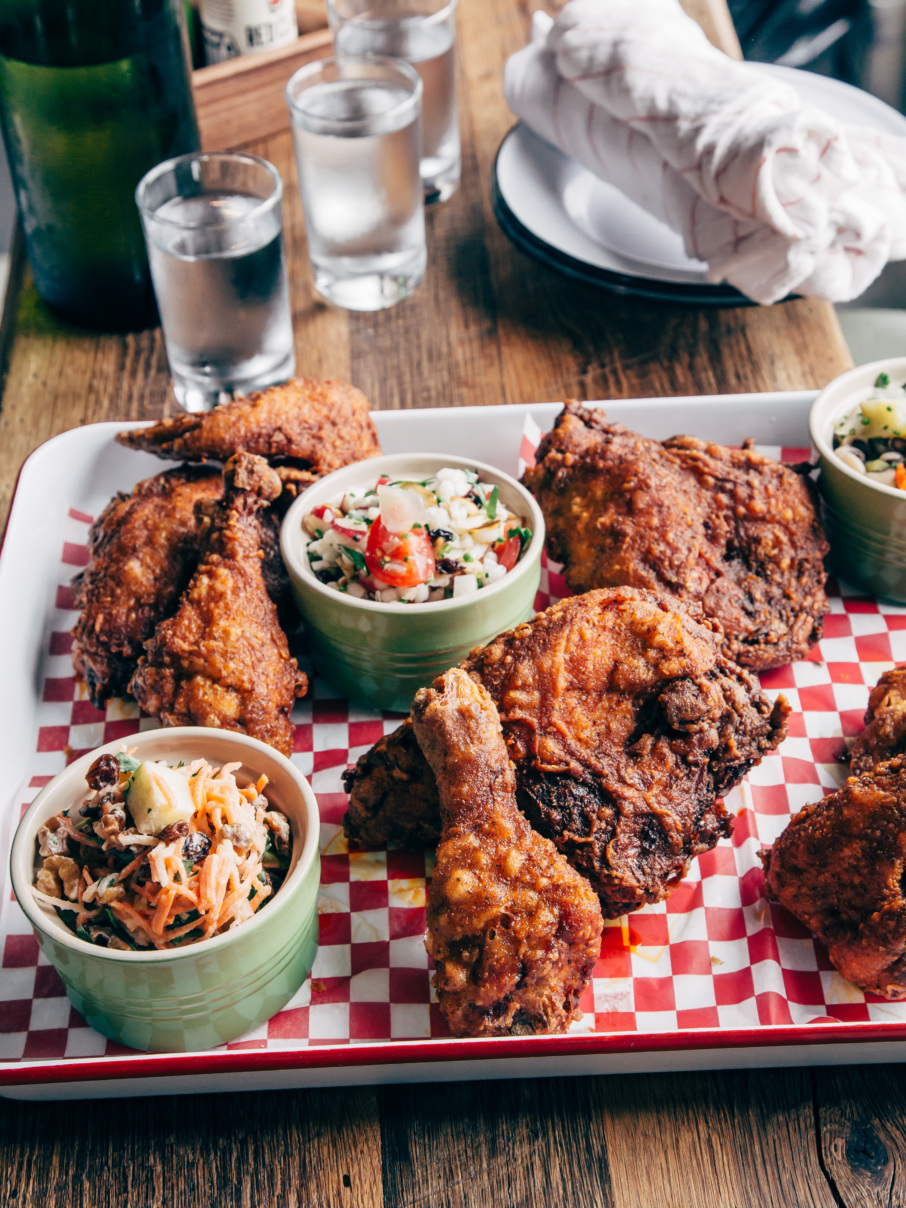
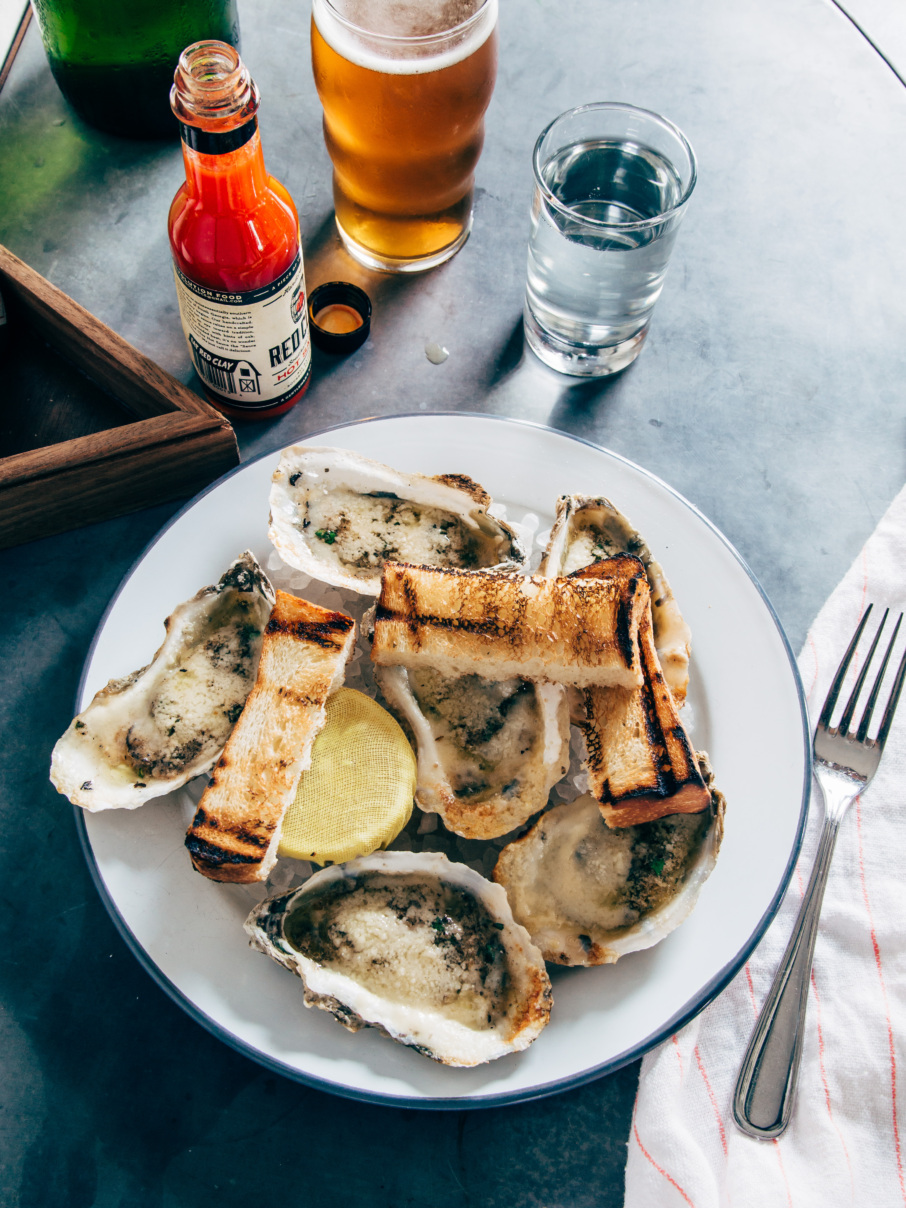
Intentionally or otherwise (and my conversations with Reitz lead me to side with otherwise), Reitz created the kind of restaurant that Charleston’s founding Lords Proprietors would have left in their wake had they known the city’s future reputation was riding on it.
To be clear, I don’t mean to imply that Leon’s is the sort of place where shuckers wear powdered wigs and bartenders serve ale in pewter tankards. But for all its overt Southernisms — Hushpuppies! Black-eyed peas! Sazeracs! — Leon’s is as deeply aligned with England as the Tory loyalists who once called Charleston home. At least, that’s how it seemed to me on a recent visit, when I happened to be sipping a Pimm’s Cup and eating a Siam salad. Who but the most devout Anglophile still says Siam? (This is probably the right place to mention that Leon’s is located at the intersection of King and I streets.)
And boy, is Reitz an Anglophile. I’m not outing him here. From the first line of his recent Substack: “I am one of those American wankers who secretly wishes he was English.” He then proceeded to confess his “deep, enduring, perhaps unrealistic love for London … I was engaged there, married outside of the city, honeymooned there, and I’ve returned every summer for the last eight years.”
By contrast, my life experience with the United Kingdom consists of one night’s stay at a Hotel Ibis near the airport, so I’m probably not qualified to say whether Reitz and his team have channeled all that is dear about English pubs into a former service station on upper King Street. But when a polling firm asked a bunch of Brits to identify the characteristics of an ideal pub, more than half agreed it would serve meals, include a beer garden, have a fireplace, and employ bartenders who were friendly with regular customers. Check, check, check, and check.
Let’s take each of those elements one by one, since Leon’s hasn’t ticked them off so much as leaned into them. As the restaurant’s name indicates, fried chicken is central to the menu. Brined and breaded, it’s a chicken with upmarket ambition, an aspirational streak highlighted by a wine list that’s made the restaurant many wine lovers’ first stop from the airport. Pairing a $12 drumstick-and-thigh combo with a $95 bottle of grower Champagne would have made innate sense to monied 18th century Charlestonians, who fixated on fancy dinnerware as a way of distinguishing their meals from what was served in poor households. After all, everyone was eating the same fried chicken and shellfish.

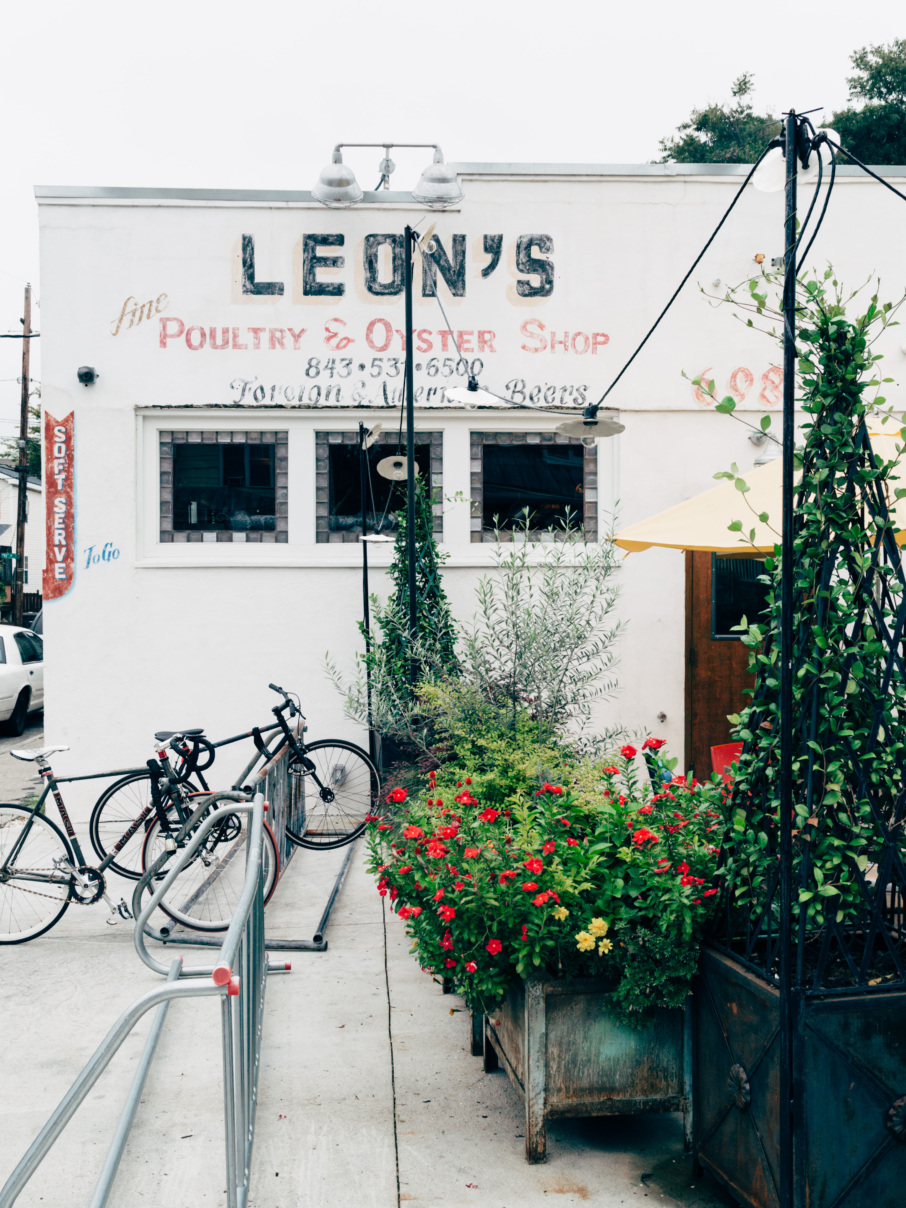
Leon’s offers shellfish, too. I’m partial to the meaty fried clams, but a place of honor on the menu (read: a box headlined “World Famous”) is reserved for the chargrilled oysters, buttered and mounded with parsley and Parmesan. Bachelor and bachelorette parties, drawn to Leon’s upbeat dining room like wedding guests to a chocolate fountain, order dozens upon dozens, but locals rarely engage in that kind of excess. Instead, they go to Leon’s for bright salads teeming with healthful vegetables.
That kind of versatility is what makes Leon’s so comfortable, along with the timelessness that the restaurant cultivates. Leon’s menu rarely changes, regardless of who’s currently salaried as chef. The kitchen just keeps on serving meals, as content pubgoers would say.
Also, beer. I’m almost positive that Leon’s is where I drank my first Radler. But it also stocks half a dozen local drafts, plus Guinness, and Bud Light in itty-bitty bottles. In 2020, Leon’s converted its front patio into a proper beer garden, with a permanent canopy replacing a gaggle of table umbrellas. The shade makes no distinction between those downing non-alcoholic IPAs and sipping on frozen G&Ts, proudly unfancy and perfectly executed.
As for the fireplace, I couldn’t recall at first whether Leon’s had one. That’s because all of Reitz’s dining rooms are curated with a gallerist’s eye, so each framed mirror, vintage oyster can, and pin-up print has a history, even if it’s not one which originates with Charleston or the restaurant.
What matters more is that the hospitality is authentic. Front-of-house staffers remember regulars, of course, but also don’t shame tourists who work their way to the top of the always-long waitlist for not being among them. Their easy kindness contrasts with the arrogance that’s been an unfortunate trait of Charleston’s for a very long time, and hints at a more modern city that isn’t so fixated on being the best. Somehow, by resurrecting strands of colonial good-timing, Leon’s has managed to help chip away at the legacy of colonialism.
And in the end, if this English pub disguised as a fried chicken den is an exercise in make believe, that’s hardly a strike against it. After all, George Orwell’s favorite pub, Moon Under Water — where drinking glasses were chosen with care; where there was a tree-filled oasis out back; where it was never too noisy for adult conversation, or too serene for children to tag along — was a complete contrivance.
He concluded his 1943 essay on the idyllic pub of his daydreams, “If anyone knows of a pub that has draught stout, open fires, cheap meals, a garden, motherly barmaids and no radio, I should be glad to hear of it, even though its name were something as prosaic as the Red Lion or the Railway Arms.”
Close enough. It’s called Leon’s.
Hanna Raskin is editor and publisher of The Food Section, a newsletter covering food and drink across the American South. She’s based in North Charleston, S.C. Follow her on Instagram. Follow Resy, too.













